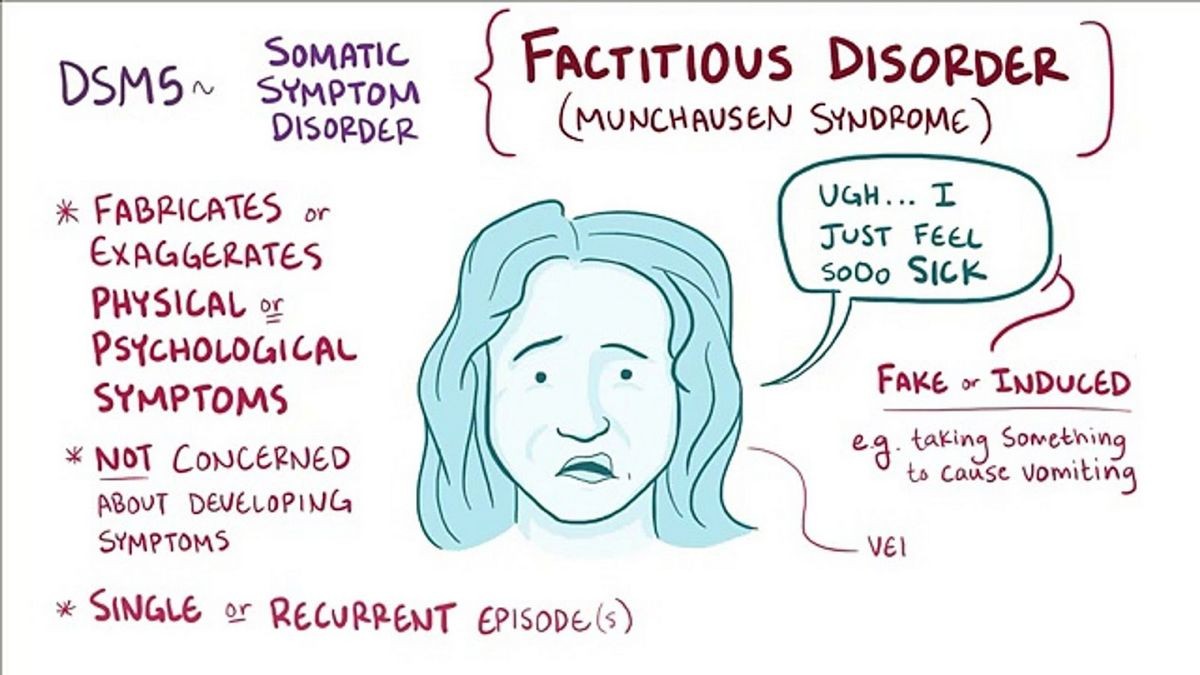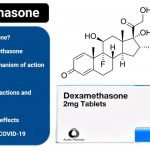
Contents
- 1 Mental Health: Factitious Disorders
- 1.0.1 Types of Factitious Disorders
- 1.0.2 Symptoms of Factitious Disorders
- 1.0.3 Causes of Factitious Disorders
- 1.0.4 Prevalence of Factitious Disorders
- 1.0.5 Diagnosis of Factitious Disorders
- 1.0.6 Treatment of Factitious Disorders
- 1.0.7 Outlook for People with Factitious Disorders
- 1.0.8 Prevention of Factitious Disorders
Mental Health: Factitious Disorders
Factitious disorders are conditions in which a person acts as if they have a physical or mental illness when they are not sick. Factitious disorder by proxy is when a person acts as if a person in their care has an illness when they do not.
People with factitious disorders deliberately create or exaggerate symptoms in several ways. They may lie or fake symptoms, hurt themselves to bring on symptoms, or alter tests to make it look like they or the person in their care are sick.
People with factitious disorders behave this way because they have an inner need to be seen as ill or injured, not for clear benefit. They are willing to undergo painful or risky tests and operations to obtain sympathy and attention. Factitious disorders are mental illnesses associated with severe emotional difficulties.
Many people with factitious disorders also suffer from personality disorders. These people have long-standing patterns of thinking and acting that differ from societal norms. They have poor coping skills and problems forming healthy relationships.
Factitious disorders are similar to somatoform disorders, which also involve symptoms not due to physical or mental illness. The main difference is that people with somatoform disorders do not fake symptoms.
Types of Factitious Disorders
There are four main types of factitious disorders:
- Factitious disorder with mostly psychological symptoms: People mimic behavior typical of mental illnesses, such as schizophrenia. They may appear confused, make absurd statements, and report hallucinations.
- Factitious disorder with mostly physical symptoms: People claim physical symptoms, such as chest pain or fever.
- Factitious disorder with both psychological and physical symptoms: People produce symptoms of both physical and mental illness.
- Factitious disorder not otherwise specified: This includes factitious disorder by proxy, where people fabricate symptoms in another person under their care.
Symptoms of Factitious Disorders
Possible warning signs of factitious disorders include:
- Dramatic but inconsistent medical history
- Unclear symptoms that are not controllable and that become more severe or change once treatment has begun
- Predictable relapses following improvement in the condition
- Extensive knowledge of hospitals and medical terminology
- Presence of many surgical scars
- Appearance of new symptoms following negative test results
- Presence of symptoms only when being observed
- Willingness or eagerness to have medical tests or procedures
- History of seeking treatment at many facilities
- Reluctance to allow health care professionals to meet with family members, friends, and prior doctors
Causes of Factitious Disorders
The exact cause of factitious disorders is unknown, but researchers are studying biological and psychological factors. Abuse or neglect as a child, or frequent illnesses requiring hospitalization, may contribute to the development of the disorder.
Prevalence of Factitious Disorders
There are no reliable statistics on the number of people with factitious disorders in the U.S. Due to dishonesty and seeking treatment at different health care facilities, obtaining accurate statistics is difficult. Factitious disorders are more common in men, but factitious disorder by proxy is more common in women.
Diagnosis of Factitious Disorders
Diagnosing factitious disorders is difficult due to the involved dishonesty. Medical professionals must rule out other physical and mental illnesses before considering a diagnosis. Psychiatrists and psychologists use interviews and assessments to evaluate a person for a factitious disorder.
Treatment of Factitious Disorders
The primary goal of treatment for factitious disorders is to modify behavior and reduce misuse of medical resources. For factitious disorder by proxy, the focus is on ensuring safety and protection of victims. Psychotherapy, particularly cognitive-behavioral therapy, is the main treatment. Family therapy may also be helpful. There are no medications specifically for factitious disorders, but related conditions may be treated with medication.
Outlook for People with Factitious Disorders
People with factitious disorders are at risk for health problems and may suffer from reactions or health problems related to tests and treatments. Recovery depends on identifying the disorder and encouraging proper medical care. Some people have brief episodes of symptoms and get better, but in most cases, factitious disorder is a chronic condition that is difficult to treat.
Prevention of Factitious Disorders
There is no known way to prevent factitious disorders.
WebMD Medical Reference
Mayo Clinic: "Munchausen syndrome."
Medscape: "Factitious Disorder."
Disorders.org: "Factitious Disorders."
Reviewed by Joseph Goldberg, MD on May 31, 2012


